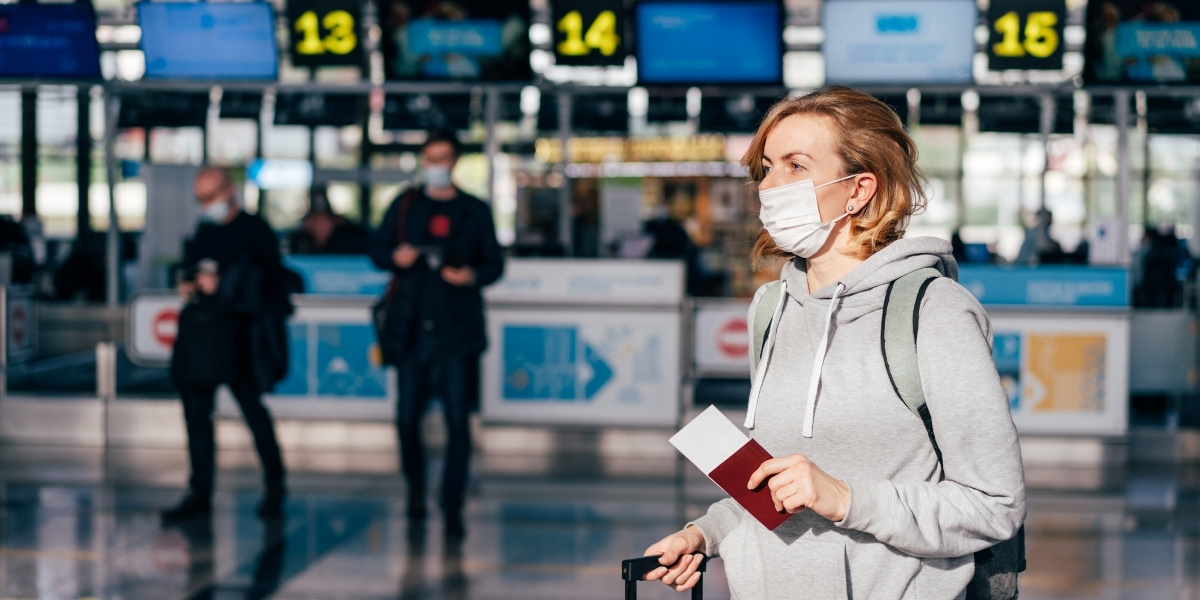
How to prepare for teaching overseas during the Covid-19 pandemic
Many industries around the world have been hit hard by the global covid-19 pandemic. The ESL industry is no exception, with many schools around the world suspending lessons, or being unable to bring new teachers in. However, as global vaccination rates are starting to improve, many countries are now starting to gradually open up their borders once again.
This means that it’s high time for all of you ESL teachers out there to start preparing for the next semester. With that in mind, how does one best prepare for teaching overseas with so many uncertainties surrounding travel and covid-19 restrictions?
To help you out, we’ve gathered some points that we think you should take into consideration when planning your next semester teaching English abroad.
Research your destination
It might seem obvious, but the first step to take if you’re looking to teach abroad is to research your chosen destination thoroughly.
In addition to looking up basic information about your destination like climate, currency, transportation, security level etc. it’s good if you also research the local pandemic situation. A quick Google search of the case numbers won’t be enough though. Low case numbers and deaths could just be temporary, and with new strains popping up every now and then, many countries could be facing new surges in numbers.
So what else should you be taking into consideration?
It could be good to also take a look at factors such as:
- How did the local government respond to the pandemic outbreak and how has the local government dealt with the pandemic up until now?
- Has there been any lockdowns in place?
- Were they fast to close down public places like schools, public facilities etc.?
- Are there social restrictions in place?
- How is the current local vaccination plan looking and how many vaccinations have been administered so far?
- Have any new covid-19 variants emerged in your destination or in bordering countries?
For example, at the time of writing, many countries that were starting to see a stabilisation in daily case numbers, such as Portugal and Indonesia, are now struggling with the new Delta variant.
Although there are no certainties, the fact that Portugal is part of the Schengen area and also borders Spain could be bad news if you’re considering a placement somewhere in the Iberian Peninsula, or even just somewhere among the Schengen member states.
The last thing you want to happen is you going abroad and ending up stranded in a country with no close friends or family nearby due to lockdowns and social restrictions. So make sure that you do your research well and pick a place you find promising with the above-mentioned points in mind.
Research travel regulations & quarantine times
Another very important part is looking up travel restrictions. Before you even get to your destination, you’re likely going to have to jump through several administrative hoops.
Travel restrictions and protocols
One of the first things you should do when you’ve decided upon a destination is to check if there are any available flights. Once you’re sure that there are, take some time to read the destination country’s government website for information such as travel restrictions, as well as the airline’s covid-19 protocols.
Depending on who you are flying with, transfer stops and your final destination, you may end up facing a myriad of different criteria and restrictions. If your only option is to take a flight with multiple layovers, then you need to find out if those countries are considered high-risk as that could impact what you have to do when you land and transfer.
Generally, travel these days consists of filling out papers such as the passenger locator forms, prior travel history, and presenting documents like vaccination certificates. In some extreme cases, you can also be required to undergo covid-19 testing upon arrival.
To be eligible for departure, the majority of airlines and countries’ immigration staff will also require you to present a negative PCR-test that is no older than a certain amount of time before departure. The maximum time allowed varies between countries, so make sure you take the extra time to look this part up carefully and regularly, as regulations might change with little notice depending on the current covid-19 situation in the country.
It would be a shame to start your trip by being denied boarding due to misunderstanding the rules and regulations that are put in place.
Quarantine times
If you find out that you need to quarantine when you land, check what exactly that means in that country. You need to know how long the quarantine is, where you can stay, and in some cases, how you can expedite the process by taking PCR tests.
Here are a few popular teaching destinations and their current quarantine requirements as of 15th July 2021:
China: In China, you could face up to 14 days of isolation in your place of residence or in centralized observation. You’ll also be required to do an extra 7 days of self-monitoring after the initial quarantine period. It is important to note that these numbers vary depending on the region.
Japan: There is also a 14-day quarantine period in Japan, which will be at your residence or a location chosen by the quarantine station chief. Japan is currently still closed for English teachers, but as more and more people are getting vaccinated, the hope of a re-opening is getting brighter.
Thailand: There is currently a mandatory 14-day quarantine in Thailand, which must take place in a government-approved quarantine facility or in an Alternative State Quarantine facility. Thailand has a strong future outlook with a high demand for teachers. As vaccination rates are increasing, it will once again become a very popular teaching destination in the future.
South Korea: South Korea also has a mandatory 14-day quarantine time. The good news is that they have recently opened their borders again for English teachers, meaning that there are no travel restrictions in place for teachers from the seven native English-speaking countries.
If you are planning on going to a country in the EU, then you can visit the EU’s interactive covid-19 website for information about each member state’s travel regulations and quarantine requirements.
Prepare all of your essential documents
After you’ve familiarized yourself with the travel and quarantine regulations of your destination (and any transit countries which you might have to pass through on the way there), you’ll want to collect all of the essential documents. We’d suggest getting a plastic folder and keeping all of your documents organized safely within it.
Digital and physical copies
Before going abroad, it can be good to make sure that you have digital copies of everything that you might need in a pinch. Doing this can save you a lot of time and trouble when having to produce and submit documents with little notice.
It can also be good to prepare physical copies of certain documents that you know that you will need to submit during the trip to your destination, as well as during your stay there. This can be documents related to for example travel, job hunting or insurances,
Here are some documents that could be good to prepare before going abroad:
- Personal documents like criminal background check, resume, insurance papers etc.
- Travel documents like passport, PCR-test, airline tickets etc.
- Medical documents, such as vaccination certificate and important medical history etc.
- Financial documents like bank account information and bank statements etc.
- Educational documents such as your TESOL/TEFL certificate and degrees etc.
Covid-19 vaccination certificate
Many of the countries that have been starting to ease up on their border regulations, require you to be vaccinated to be allowed entry into their country. If you are lucky enough to have been able to get your covid-19 shots, then make sure that you have your vaccination certificate ready to be presented to the relevant authority.
The vaccination certificate is most commonly available in printed form. There are, however, also digital vaccination certificates/passports available to some countries. If you are from a country within the EU, you can go to the EU’s covid-19 certificate website to see if your country is connected to the EU’s digital vaccination passport program. This is a program that is currently being developed in an attempt to help provide people with digital online vaccination passports.
Print your PCR-test
Make sure that you also prepare and print out your negative PCR test result before arriving at the airport. Some countries require you to present a negative PCR test that isn’t older than a certain amount of hours. It’s not uncommon to see requirements such as the tests not being valid if they are older than 72-h. Some countries have even stricter regulations, with tests not being accepted if they are older than 3h.
For emergency situations, some airports also offer on-site last-minute testing. It’s worth keeping in mind that these on-site testing services are often quite costly, and they may also end up affecting your flight schedule, depending on how fast they can be produced.
So do yourself a favor and take care of this before going to the airport.
Take out insurance
If you’re planning on traveling abroad during the pandemic, then taking out travel insurance is more important than ever. While it’s easy to think that you can get away without buying travel insurance, it simply isn’t worth the risk with all the disruptions to flights that covid-19 has brought.
As for medical insurance, it goes without saying that testing positive for covid-19 in another country will be the last thing you want to deal with. Not only can it be a scary experience, but if you’re unlucky it can also be an expensive one. Having proper medical insurance sorted out before leaving, will not only help ease your own worries, but also your friends and families’.
It would be naive to think that you’ll be fine without it, since you will be in regular contact with teachers, students, and perhaps even parents too. That’s not even factoring in your interactions outside of the school.
So make sure that you have both digital and physical copies of your insurance documents in order in case the unforeseen were to happen.
Local emergency numbers
It is also good to look up and save important local emergency numbers in your phone, as well printing them in case you’re in a place without internet access. This way you’ll know who to contact if you end up being in need of emergency assistance.
TESOL certificate
Having a TESOL/TEFL certificate is often the minimum requirement needed to secure an English teaching position abroad or online. So before going, make sure that you’ve completed a thorough TESOL/TEFL course.
It could also be good to consider ordering a hardcopy of your TESOL/TEFL certificate, as when applying for jobs in physical schools (rather than online teaching schools), a hard copy of your certificate can help tip the scales in your favor and land you the job.
Another important thing to note is that some countries may require you to get your TESOL/TEFL certificate authenticated for overseas use. Certain countries, most famously – China and Vietnam, require education certificates such as TESOL/TEFL certificates and degrees to go through a legalization process, as well as a formal government attestation process. Unfortunately, many certificates can’t make it through such processes due to them lacking the appropriate accreditation. So it is important that you pick a course that you know is guaranteed to pass.
Getting your TESOL/TEFL certificate:
If you are interested in teaching English abroad, but haven’t yet enrolled in a TESOL/TEFL course, then you can do so with the button below.
Our accredited 120-hour course will not only provide you with the necessary qualification and skills needed to teach abroad and online, it is also guaranteed to pass through Chinese and Vietnamese government authentication.
.
Resume
Make sure that you have a digital version of your resume easily available and ready to be printed, as this will be an essential part of hunting for jobs. It can also be good to prepare a few physical copies of it just in case you are unable to find a print shop at the beginning of your stay.
If you haven’t created your resume yet, then I suggest that you have a look at our ultimate ESL teacher resume guide. With it, you’ll be able to create a resume that both looks professional and will make you more hirable when applying for jobs.

Consider what additional items you need to pack
Finally, turn your thoughts to packing and finances. As packing can be a very personal thing, we won’t cover base items such as clothes, personal hygiene products etc. but rather focus on the essential items you should make sure that you have packed with you.
So what essential items do you need to take with you when moving to another country?
Sanitation products
The last thing you want when traveling to a new country is to be caught out by local rules, such as requirements to wear masks at all times. Especially if you didn’t pack any! Do your research ahead of time to see what the rules are regarding masks, and also what masks are deemed acceptable. Once you know what the rules are, it’s worth bringing enough masks to last you the first week or so, in case you don’t have the chance to pick some up locally.
It’s also worth considering packing plenty of hand sanitizer and antibacterial wipes before leaving, especially if you have a specific brand that you like. Just make sure that look up what’s allowed to be brought into your destination.
Money
If you’re going to another country, you won’t want to depend on your home bank account when you need to access funds. As such, it’s a good thing to exchange some money into the local currency and bring it with you to avoid getting stuck with no access to your bank account. We’d strongly recommend you take enough cash to last you at least a month or two, including expenses such as rent and bills.
We understand it might seem a little excessive, but if you’re unlucky and the pandemic ends up causing inconveniences for you, then it’s good to have some extra funds available. Better safe than sorry, as they say.
Here are a couple of examples of when it’s good to have extra funds secured and available:
- Depending on where you decide to go, you might find out that some teaching programs aren’t as punctual as others when it comes to delivering payments on time. If you’re really unlucky, this can leave you without income for a few months. So make sure you have enough funds to cover this eventual situation.
- There’s also the possibility, however unlikely, that you might have to fly home if things take a turn for the worse with the covid-19 situation in the country. Therefore, it’s good to also make sure you have access to enough funds to cover a flight ticket home.
After you’ve arrived, it’s a good idea to set up a local bank account to store your earnings. Your school should be able to recommend some good alternatives that you can explore. This is also a good opportunity to check in with your school about how the payments work and if the covid-19 situation could potentially affect your earnings.
Miscellaneous
The last category encompasses anything else you might like to have on your person, including books, e-reader, tablet, chargers, and adaptors for the country you’re heading to.
This could be especially important if you are facing quarantine time when landing or if you are unlucky and get stuck in lockdown.
If you know that you are going to have to go through quarantine, then it could also be good to pack some snack foods and entertainment. Just make sure that the things that you bring in follow local laws and regulations.
Summary
As you might have understood by now, preparing to go abroad to teach English during the Covid-19 pandemic will require you to do some extra planning to make sure that your experience is as smooth as possible. Although there are many factors and preparations that you need to keep in mind, do remember that it is entirely possible to start your overseas English teaching career. Don’t let a little extra planning stop you from pursuing your next adventure as an ESL teacher abroad.
To summarize the points mentioned above, remember this:

1. Research Your Destination
Look up current travel restrictions and quarantine times.

2. Prepare Essential Documents
Make sure you have all the documents you need.

3. Plan Your Packing List
Essential items like money, sanitation products, and quarantine entertainment.
If you keep these tips in mind when planning your next adventure, then you have a great chance of launching your overseas English teaching career, despite the current state of the world.





Leave A Comment